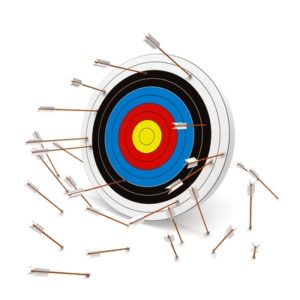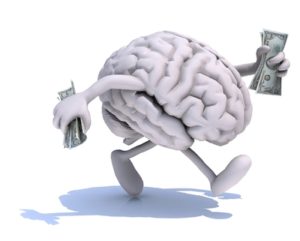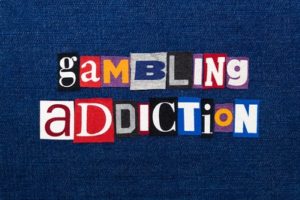 Imagine a scenario in which you’ve placed a 14-leg accumulator and 13 of the legs have won. The final leg loses and you don’t have acca insurance, so instead of winning £15,000 you’ve ended up losing your £2 stake with nothing to show for it.
Imagine a scenario in which you’ve placed a 14-leg accumulator and 13 of the legs have won. The final leg loses and you don’t have acca insurance, so instead of winning £15,000 you’ve ended up losing your £2 stake with nothing to show for it.
How do you respond to that bet? In reality, it was just as much of a loss as if you hadn’t won a single one of the legs, but because you feel as if you nearly won there is a good chance that you would react to the near miss as if it was a winner. Psychologically, this is a big problem for bettors.
If you were to place a £5 Win wager on a horse and it ended up coming dead-last in the race that you’ve bet on, you’d accept that it was just a bad wager and move on. If, however, it came second, even if by a long distance, you would feel as if you had come really close to winning.
This might well encourage you to place another bet, in spite of the fact that it was just as much of a losing wager as if it had come dead last. This is even more of an issue for problem gamblers, who react more intensely to near miss bets.
Near Miss Wagers Encourage Further Betting
 It is a reality that bets that only just miss out on being winners are more likely to encourage the bettor to try again. Little is actually know about the neurocognitive reasoning behind it as a state of affairs, but the evidence is there to show that punters that come close to winning a bet believe that their chances of winning are higher than if they had missed out by a further margin.
It is a reality that bets that only just miss out on being winners are more likely to encourage the bettor to try again. Little is actually know about the neurocognitive reasoning behind it as a state of affairs, but the evidence is there to show that punters that come close to winning a bet believe that their chances of winning are higher than if they had missed out by a further margin.
Both bet types result in losing wagers, but one engenders a sense of being ‘close’ to winning, which means that people feel that they’ll succeed eventually.
The obvious example to use is that of a horse race. You have placed a bet on a horse to Win, with your returns predicted to be £40 from a £5 stake. During the race, your chosen horse remains neck-and-neck with another, but at the end of the race the other horse crosses the finish line a length in front and takes the money. Even though you have lost the bet, you feel as though you should have won because of how close you came. This then re-enforces the idea that your methods are good and you should place another bet.
The feeling that comes from a near miss is entirely different to the feeling that you get from placing the same bet on a horse that is a loser because the horse doesn’t even get close to winning the race. In that instance, you’re much more likely to shrug your shoulders, call a bad bet a bad bet and not worry about placing any more wagers in the immediate. In reality, both of the bets are losers as your stake now belongs to the bookmaker, but one of them came close enough to mean that you feel as if you’re likely to win next time.
The Slot Machine Task
 Four psychologists at the University of Cambridge, Luke Clark, Andrew J. Lawrence, Frances Astley-Jones, and Nicola Gray, developed a gambling task that was designed to resemble a slot machine. It had two reels, with six icons on each, and a payline.
Four psychologists at the University of Cambridge, Luke Clark, Andrew J. Lawrence, Frances Astley-Jones, and Nicola Gray, developed a gambling task that was designed to resemble a slot machine. It had two reels, with six icons on each, and a payline.
During each trial, the participant had the chance to either win 50p or to not win at all. On some trials, the player would choose the play icon, whilst in others it would be chosen by the computer. Wins would occur one-sixth of the time, with near-misses on two-sixths (one third).
That was comparable to real-world slot machines, with previous work carried out showing that gambling persistence occurred 30% of the time. When working with the players, they were asked how they rated their chances of winning before, how pleased they were with the result and how much they wanted to continue to play.
The ‘pleased with result’ ratings were higher when they were allowed to pick their own icon, as opposed to when the icon that they were playing with was chosen at random by the computer used in the model.
Interestingly, near misses when the icon was chosen by the computer resulted in a lower desire to continue to play than near misses when the player chose the icon. That being said, the desire to carry on playing after a near miss was always higher than when the icon had completely missed being a winner. It is suggestive of a situation in which people believe that they’re getting closer to winning, even though in actuality a miss of any form is just as much of a loss.
Being close to winning is still losing, even if it doesn’t feel like it. It is a trick gambling companies know about too and they can even set up games and markets to exploit the psychological bias.
It’s Worse For Problem Gamblers
 The reality is that the psychological impact of a near miss has a much bigger effect on problem gamblers than on those that are more casual bettors.
The reality is that the psychological impact of a near miss has a much bigger effect on problem gamblers than on those that are more casual bettors.
A problem gambler’s brain responds much more intensely when their bet is a near miss than the brain of other people, according to work carried out by the University of Cambridge. The brains of 20 gamblers were scanned, using a functional magnetic resonance imaging decide, with the scans taking place whilst they were engaged in playing on a computerised slot machine.
It was discovered that the dopamine centre of the brain, which is responsible for the ‘reward process’, were more active in problem gamblers when a ‘near miss’ was involved. The near miss actually resulted in the same brain patterns being activated as a win did, despite the fact that there was no reward given.
The dopamine centre is associated with addiction, being targeted by drugs and part of the reason why they are so addictive. It could be, according to Dr. Luke Clark, an explanation of why problem gamblers find it so difficult to quit.
